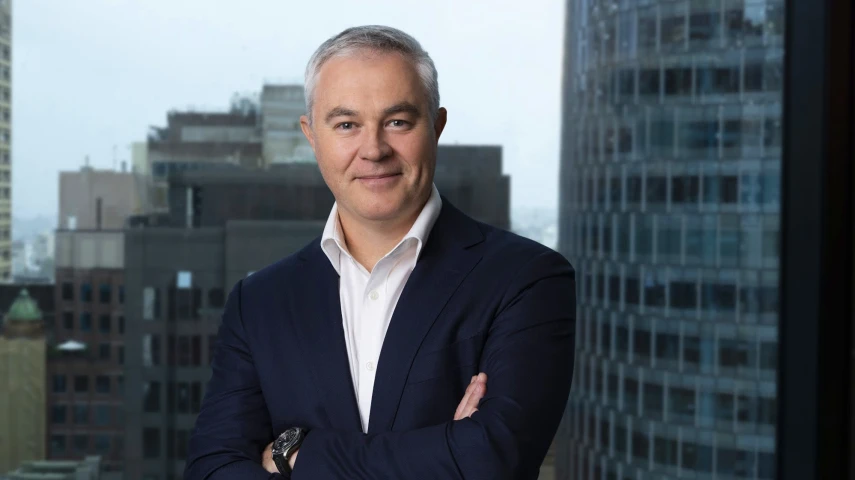Mason Stevens CEO on its PE-fuelled growth trajectory



Having rejected the possibility of going ASX-listed, Mason Stevens’ CEO details why the wealth platform went down the private equity (PE) route and how it intends to accelerate its growth ambitions.
Earlier this month, Sydney-based private equity firm Adamantem Capital completed its acquisition of Mason Stevens following the initial announcement last December.
Mason Stevens was established in 2010 and has grown to manage some $8 billion in funds under advice, with more than 80 staff in its Sydney and Melbourne offices.
In a conversation with Money Management, the platform’s chief executive, Tim Yule, said Mason Stevens previously considered an initial public offering (IPO) on the ASX in 2023 as a way to fast-track its investment in technology, people, and product.
Mason Stevens engaged Barrenjoey and Morgans at the time, according to media reports, with the company being valued between $200 million and $500 million. However, it was understood that falling equity markets at the time led the process to be scrapped.
According to HLB Mann Judd data, Australia’s IPO market saw its lowest activity in two decades last year with just 29 listings recorded in 2024, compared to 87 IPOs in 2022. Only four listings were recorded for the diversified financials sector in 2024, it found.
“We explored a public market offering, so an ASX listing. But at the time, the market wasn’t ready for any public offer,” Yule described.
With the IPO plans on ice, he said it was subsequently surprised by the volume of PE interest in the company which prompted it to consider this as an alternative route to listing.
Law firm King & Wood Mallesons noted the regulatory burden on public entities can often make listing on the ASX seem unattractive, alongside the pains of annual general meeting cycles and continuous disclosure obligations.
“Once we paused that process, we had a significant number of reverse inquiries from parties who were interested in working with Mason Stevens, coming onto the register and acquiring,” Yule explained.
“We were actually surprised at how strong the indicative interest was in working with Mason Stevens. That was from the very top end of private equity right through to more specialist small- and mid-cap domestic players.”
Narrowing down the contenders, the business identified Adamantem Capital as a strong potential, ensuring the PE player was aligned with its own vision and values before progressing with a binding agreement.
“We spent many months getting to know Adamantem and were very judicious in how we wanted to approach them. For us, it was about making sure that any partner that came to join the register was aligned with our values and our vision and understood the opportunity ahead of them.
“Having now taken the business to as far as we possibly could with our existing cohort of shareholders, to have a new supporting shareholder come in with a shared vision and a common purpose, I think it’s incredibly exciting,” the CEO said.
Growth on the horizon
Now with the backing of a PE firm behind them as a 100 per cent shareholder, Mason Stevens is looking to accelerate its investment in technology solutions to support the growth of its financial adviser clients.
In particular, the platform is targeting a certain cohort of advice practices, rather than trying to be “all things to all people”, Yule said.
“We are really focused on delivery of solutions for more sophisticated advice practices, advice practices that are looking to scale and grow their businesses, advice practices that are looking to differentiate themselves from the market.
“When we look at our average client balance today, it is materially higher than what the more mass market platform businesses are at. We have many family offices that we will service, often with the support of a third-party adviser. That is our natural sweet spot.”
In addition to enhancing its technology footprint, the business is also investing in a range of new technical staff to help support advisers and reach new markets.
“As we grow – as our advisers and businesses grow – we need to make sure that we have the technology, infrastructure, people, and processes to be able to cope with that growth. That’s a good problem to have,” the chief executive added.
“With accelerating investment in technology, really focusing on our existing clients to help them scale and grow, plus some more strategic hires, I think we can be extraordinarily successful.”
Another way Mason Stevens will expand moving forward, according to Yule, is through M&A – something it hasn’t focused on in the past as it has prioritised organic growth.
“The one thing, for example, that we haven’t focused on traditionally is around M&A – that is now firmly on the radar. So our ability to scale through that undoubtedly will be accelerated by Adamantem.
“Clearly there are [M&A] opportunities out there which may be beneficial for Mason Stevens and for clients. So whether that’s in the technology space, whether that’s in the superannuation environment, we don’t know, but what we need to be open to is having the conversation, exploring things that might come up from time to time.”
Searching for the right target
Adamantem’s acquisition of Mason Stevens is just one of the many examples of private capital flowing into the Australian wealth management market in recent months.
This is evident in the ongoing bidding war for Insignia Financial, Oaktree Capital’s $240 million investment in AZ NGA, and WT Financial’s joint venture with New York-based Merchant Wealth Partners.
This capital is indicative of the industry’s attractiveness, Yule noted, elaborating: “It’s always encouraging to see private capital – institutional, quality capital – come into our sector, and that can only be a good thing. I think it’s a very strong indicator of the strength of the industry and also of the increasingly professionalised nature of our businesses.”
The real challenge for PE players entering this market, however, is finding the right high-quality opportunity to invest such capital when there are only a limited number of firms at play in a much smaller market, he argued.
“The private equity firms are attracted to this industry in particular – whether that’s advice or in platforms, or in funds management – because of the inherent growth nature of the businesses and the relative stability of the earnings streams. But having said that, the challenge also is finding targets that are attractive for private equity.
“I think the challenge for institutional capital is that there are very few high-quality opportunities to deploy that capital. That’s just a function of the size of the private equity capital pile versus the investment universe in the Australian market.”
Recommended for you
Net cashflow on AMP’s platforms saw a substantial jump in the last quarter to $740 million while its new digital advice offering boosted flows to superannuation and investment.
Insignia Financial has provided an update on the status of its private equity bidders as an initial six-week due diligence period comes to an end.
A judge has detailed how individuals lent as much as $1.1 million each to former financial adviser Anthony Del Vecchio, only learning when they contacted his employer that nothing had ever been invested.
A former Victorian financial adviser has been sentenced after stealing $4.4 million from clients, family and friends to feed his “raging gambling addiction”.















